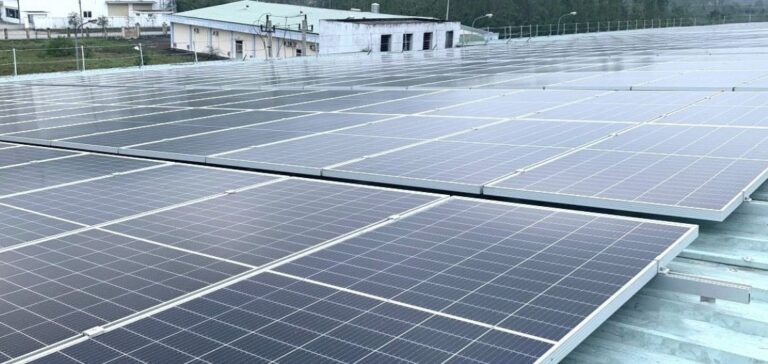Vietnam recently introduced a new Direct Power Purchase Mechanism (DPPA), designed to enable direct power purchases between generating units and large electricity consumers. This mechanism is seen as a major opportunity to accelerate the adoption of renewable energies in the country, according to sources present at the Solar & Storage Vietnam 2024 conference held in Ho Chi Minh City on July 10 and 11.
However, while the overall outlook is positive, some voices are expressing concern about the lack of detail in the mechanism. A Vietnamese venture capitalist has described 2024 as a “pivotal year” for the take-off of renewable energies. “With the DPPA, more renewable energy capacity should emerge by 2030. This should also boost the market for Renewable Energy Certificates (I-RECs) in Vietnam,” he said.
Direct Energy Purchasing mechanisms
The DPPA decree introduces two main mechanisms. The first involves direct purchase via a private transmission line, where entities must sign a power purchase agreement between renewable energy generators and large electricity users. These customers can also purchase additional electricity from Vietnam Electricity (EVN).
The second mechanism concerns direct purchasing via the national grid. Here, entities will sign a forward contract between a renewable energy production unit and a large customer or authorized retail supplier in a specific area. In addition, renewable energy generators will have to sell the electricity they produce on the competitive SPOT wholesale electricity market.
Challenges and opportunities
Despite a positive reception, some market participants pointed to the lack of detail in the decree. “Although the DPPA policy has opened up new avenues for companies wishing to bypass the EVN to source renewable energy, grid connectivity is another issue yet to be resolved,” said a representative of a Vietnam-based energy construction company.
One venture capitalist described the DPPA as a “catalyst”, enabling renewable energy generators to meet customer demands. “But feasibility tests still need to be carried out before renewable energy reaches the grids in local municipalities.”
Future prospects and development
In a presentation by Nguyen Ngoc Phuc Dang, EVN PECC3 legal specialist, it was stated that rooftop solar projects can participate in the DPPA via private transmission, while solar projects over 10 MW can participate in the DPPA either via the grid or via private transmission.
Experts predict an increase in investment in rooftop solar projects, in line with Vietnam’s goal of carbon neutrality by 2050. “Demand for rooftop solar in the commercial and industrial sector is high. With the publication of the DPPA, I now look forward to an executive order for rooftop solar,” said Samresh Kumar of SkyX Solar.
Although Vietnam’s DPPA represents a significant step forward for the adoption of renewable energies, major challenges remain, particularly in terms of grid connectivity and operational details. Nevertheless, the long-term outlook for the sector is promising, with an expected increase in investment and installed capacity.






















